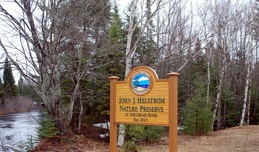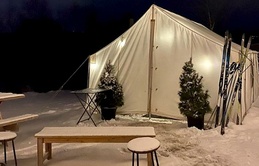An economic history of my family
July 3, 2011
An economic history of my family: Facing a future without pensions and health insuranceBy Ann Krantz
I was prompted to think about this history when I heard a young woman remark, on NPR’s Marketplace Money, “We will be the first generation without pensions,” the discussion being about wise investing. That’s true, and if the current politicians have their way, this may also be the first generation in modern times without health insurance and Social Security.
My father’s parents were immigrants from Sweden at the end of the nineteenth century. They both worked as cooks in lumber camps. At some point they met, married, and bought or homesteaded a subsistence farm in Menominee County in the Upper Peninsula. My father was the youngest of three children born between 1900 and 1908. When my Aunt Vera finished high school, she went to Michigan State College and became a teacher. But the boys had to become wage earners to support themselves, their families-to-be, and as the years went on, their parents. This was before the days of Social Security which was instituted in 1935.
At that time and until fairly recently, social programs for the elderly were very spare. The only one I can think of was an institution known as the county poor farm which housed the elderly who either didn’t have any family or their family didn’t have the wherewithal to care for them. I remember as a child going caroling with my Camp Fire Girls group at the one in Delta County. It had a big metal chute for a fire escape. It was like the ones at water parks except that it was bigger, not brightly colored and ended in the dirt rather than in a pool. This bit of nostalgia is irrelevant because when poor farms become needed again, I’m sure the fiscal conservatives of today would consider such a facility as welfare or imprudent spending – possibly even a trigger to dispatch an Emergency Financial Manager.
In any case, my father and uncle took competitive civil service exams and became railway mail clerks – jobs that provided a good income, a pension, and job security as long as their work was satisfactory and the passed annual exams.
My mother’s parents were, I believe, second generation Americans whose predecessors were from Belgium. They also had three children and when the children were young, my grandfather worked as a bookkeeper for the Worcester Lumber Company. They lived in Cusino (now a wildlife refuge) in the middle of the Upper Peninsula, and he traveled from lumber camp to camp on snowshoes in the winter, doing the books. At some point he moved the family to Chassell and took a job at the local bank; the family later moved to Stephenson where he continued as a banker. All of his children were able to go to college.
My mother was the oldest and went to Normal School in Marquette – now Northern Michigan University. Her first job was in during the Depression in National Mine where she worked for room and board provided by a local family. She later taught in Ypsilanti while putting her brother through law school at the University of Michigan. Her sister graduated from Michigan State College as a nutritionist.
After my parents married, they moved to Escanaba where I was born in 1936 and my sister was born six years later.
My mother did not teach then because married women with children were not hired. In those days teachers were widows and single women who lived in rented rooms within walking distance of their schools. There were a few men teachers at the secondary level, usually coaches or young men who were just passing through before they went on to law school or some other more lucrative profession. When my sister and I were young, my mother expended her intellectual energy helping the Women’s Club organize cultural events – like bringing Paul Robeson to town for a concert – and substitute teaching.
She resumed her teaching career when my sister and I were considered by custom to be old enough not to require a “stay-at-home” mom. I don’t remember what year that was. During her years as a teacher the MEA had evolved from an association to a union so that by the time she retired, she had her teacher’s pension, MEA health insurance, my father’s pension (he had died in l963) and Social Security.
To return to the Marketplace Money discussion of investing wisely, my experience has not been encouraging. When my mother died, I bought an insurance policy with half of the inheritance so that when my daughter reached college age I could borrow from it for her education. My financial adviser said, “It’s like having your own bank.”
But when the time came to use the money I had saved, the insurance company was in receivership in California as a result of Neil Bush’s junk bond adventure.
In 2000, I inherited some money from my uncle, the one who was put through law school by my mother. So I paid my debts and invested the rest, conservatively through a financial adviser who works for Ameriprise. If I had put it under my mattress, I would now have a few dollars more, and my taxes would be a lot simpler. This financial adviser now sends me emails with the Tea Party slogan “Don’t Tread on Me” at the bottom of each.
This bit of Michigan history is an illustration in a larger story that could be called The Rise and Fall of America’s Middle Class. It began with the great waves of immigration in the late 19th century and is nearly over.
I worry about my children. I worry about everybody’s children except, of course, the children of that top five or ten percent who are lining their pockets from the public treasuries. Like the oil companies, they are doing just fine on their own.
Ann Krantz is a retired TCAPS teacher and a former librarian with the New York Public Library. She has lived in Traverse City since 1975.
Trending

Ready, Set, Camp! Northern Michigan's 2026 Summer Camps
Yes, it’s January, but many summer camp registrations are now open or will soon be available. Below, we’ll share… Read More >>
LTC Announces Record-Breaking Conservation Year
Earlier this month, the Little Traverse Conservancy made a big announcement: 2025 was their best conservation year ever in t… Read More >>
Beer & a Grown-up Book Fair
Knowledge is power and beer…is a welcome addition to a cold winter’s night. So it makes perfect sense that Trav… Read More >>


